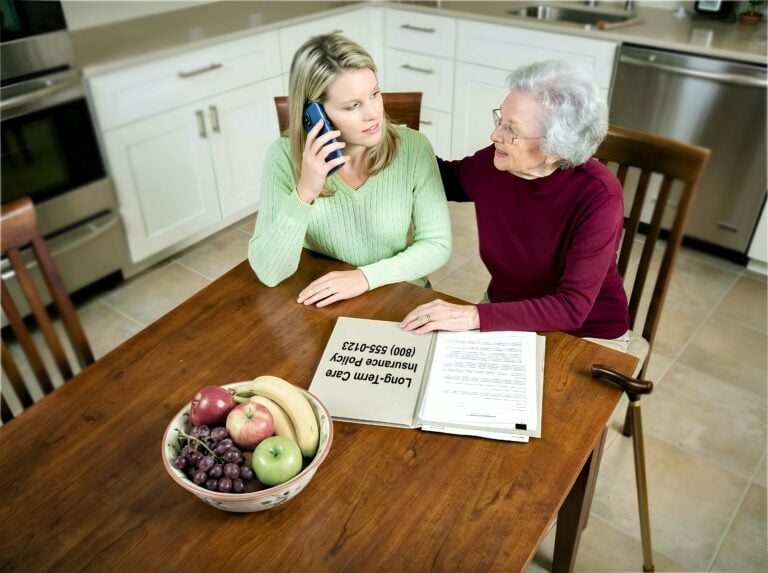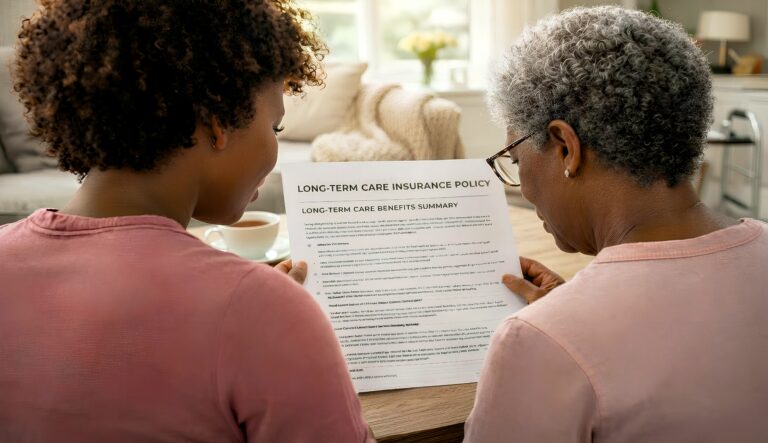Few conversations are more difficult than asking a parent to stop driving. For most seniors, driving represents far more than transportation—it symbolizes independence, freedom, and control over their own lives. The very person who once taught you to drive may now need to hear that it’s time to hand over the keys.
This conversation matters because the stakes are high. According to the Insurance Institute for Highway Safety (IIHS), 5,502 people aged 70 and older died in motor vehicle crashes in 2023. The CDC reports that every day in the United States, approximately 20 older adults are killed and 540 are injured in car crashes. Yet research consistently shows that discussing driving concerns with compassion, preparation, and respect can lead to better outcomes for everyone involved.
At All Heart Home Care, we understand how challenging this transition can be—both for seniors and their families. This guide offers strategies for having a productive conversation, recognizing when it’s time to act, understanding the emotional impact, and ensuring your loved one maintains their independence and quality of life after they stop driving.
Senior Driving: What the Statistics Really Show
Before approaching this conversation, it helps to understand what the research actually says about older drivers. The reality is more nuanced than stereotypes suggest.
The Numbers
- In 2023, there were approximately 40 million people aged 70 and older living in the United States (about 12% of the population)
- Approximately 35 million licensed drivers are 70 and older
- The number of licensed drivers 70+ has increased 98% since 1997
- 88% of people 70 and older now have driver’s licenses (up from 73% in 1997)
- Car crash deaths involving drivers 65+ increased 40% between 2013 and 2023, reaching 9,587 deaths in 2023
- Older adults account for approximately 19% of all traffic fatalities
Understanding the Risk Profile
The relationship between age and driving safety is complex:
Lower Overall Accident Rates: According to the National Safety Council, people aged 25-34 are nearly seven times as likely to be involved in an accident as those aged 75 and older. Seniors account for only 13.7% of fatal accidents and 10.5% of all accidents.
Higher Per-Mile Risk: When measured per mile driven, the picture changes. Fatal crash rates begin rising around age 70, and per-mile fatality rates are highest among drivers 85 and older.
Greater Vulnerability: Seniors who are in accidents face higher injury and fatality rates due to physical fragility. A crash that might cause minor injuries for a younger person can be life-threatening for an older adult.
Common Crash Types: Older drivers are more likely to be involved in certain types of collisions, particularly angle crashes at intersections, often involving failure to yield the right-of-way.
The Bottom Line
There is no universal age at which seniors should stop driving. Many people drive safely into their 80s and 90s, while others develop impairments much earlier. The decision should be based on individual ability—not age alone.
Before You Act: Are They Actually Struggling to Drive?
Please don’t assume your parent is struggling simply because they’ve reached a certain age. Before initiating a difficult conversation, take time to assess the situation objectively.
Go for a Ride
The best way to evaluate driving ability is to observe it firsthand. Ask your parent to drive you somewhere—perhaps to lunch or a routine errand—and pay attention to their performance:
- Are they confident and comfortable behind the wheel?
- Do they check mirrors and blind spots appropriately?
- Are they maintaining a consistent speed and staying in their lane?
- Do they respond appropriately to traffic signals, signs, and other vehicles?
- How do they handle challenging situations like left turns, merging, or parking?
Take mental notes of any concerning incidents. You may need to reference specific examples later.
The 20 Warning Signs
The National Highway Traffic Safety Administration (NHTSA) advises families to watch for these indicators that a senior driver may no longer be safe:
Driving Behavior:
- Drifting into other lanes or straddling lanes
- Making sudden or improper lane changes
- Ignoring or missing stop signs and traffic signals
- Increased confusion while driving in traffic
- Braking or stopping abruptly without cause
- Accelerating suddenly without reason
- Coasting to a near stop amid moving traffic
- Pressing the brake and accelerator simultaneously
- Driving significantly slower than the posted speed limit
- Backing up after missing an exit or turn
- Failing to use turn signals—or leaving them on
- Difficulty reacting quickly to multiple stimuli
Observable Signs:
- Dents, scrapes, or damage on the car (or on fences, mailboxes, garage doors, curbs)
- Two or more traffic tickets or warnings in the past two years
- Increased “close calls” or “near misses”
- Getting lost on familiar routes
- Difficulty seeing pedestrians, objects, or other vehicles
- Increased anxiety, stress, or frustration while driving
- Friends, neighbors, or relatives expressing concerns about their driving
- Car insurance premiums are increasing due to driving issues
Health-Related Signs:
- Vision problems (difficulty seeing at night, glare sensitivity, reduced peripheral vision)
- Hearing impairment
- Slower reaction times
- Stiff joints or reduced range of motion (difficulty turning to check blind spots)
- Medication side effects causing drowsiness or dizziness
- Memory problems or confusion
- Diagnosis of dementia or cognitive impairment
Note on Dementia
Research indicates that as many as 60% of older adults with mild cognitive impairment and 30% of those with dementia continue to drive. The National Institute on Aging and Alzheimer’s Association both advise that driving may be possible in the early stages of dementia. Still, families should plan for when driving will no longer be safe—because that day will come as the disease progresses.
Strategies for Having the Conversation
Once you’ve confirmed that concerns about driving are warranted, it’s time to talk. This conversation requires patience, empathy, and preparation. Here’s how to approach it effectively.
1. Start Early—Before a Crisis
Don’t wait until after an accident to have this conversation. If you’re noticing warning signs, address them proactively. Starting the dialogue early allows for gradual transitions rather than abrupt changes.
As AAA’s traffic safety experts recommend: “Just like planning for financial and healthcare needs in retirement, there are many benefits to planning for the day when it makes sense to limit or stop driving.”
2. Choose the Right Time and Setting
- Have the conversation when you’re both calm—not immediately after a driving incident when emotions are high
- Choose a private, comfortable setting
- Avoid rushed moments (not while buttoning your coat to leave)
- Pick a time when your parent isn’t tired, hungry, or stressed
3. Choose the Right Person to Lead
Research from The Hartford Center for Mature Market Excellence and MIT AgeLab found that seniors are nearly twice as likely to listen to driving concerns from their spouses as from their adult children. If your parent is married, consider whether their spouse should initiate or lead the conversation.
If you’re the one having the conversation, choose the family member with the closest, most respectful relationship with your parent.
4. Frame It as a Conversation, Not an Intervention
Avoid making your parent feel ambushed or pressured. Start one-on-one rather than with the entire family present. Some approaches that work:
Open with a question:
- “How are you feeling about driving these days?”
- “Have you noticed any changes in your driving recently?”
- “Is there anything about driving that’s become more difficult?”
Opening with questions allows your parent to voice concerns they may already have but haven’t shared.
Express concern, not accusation:
- “I’ve been worried about your safety on the road…”
- “I noticed [specific incident], and it made me concerned…”
- “I love you and want to make sure you’re safe…”
Focus on health, not age:
- Rather than “You’re too old to drive,” try “I’m concerned that your vision/medications/reaction time might be affecting your driving.”
- Use phrases like “driving retirement” rather than “taking away your keys.”
5. Listen to Their Concerns
This is not a one-way conversation. Your parent likely has genuine fears about what giving up driving means:
- How will I get to the doctor’s appointments?
- How will I see my friends?
- How will I get groceries?
- Will I become a burden on my family?
- Am I losing my independence forever?
Listen to all their concerns before jumping to solutions. Acknowledging their feelings validates their experience and makes them more receptive to alternatives.
6. Present Solutions, Not Just Problems
Come prepared with specific transportation alternatives (more on this below). Show your parent that giving up driving doesn’t mean giving up their life. Many people find that life actually gets easier without the responsibilities of car ownership—no more maintenance costs, insurance premiums, parking hassles, or the stress of driving in difficult conditions.
7. Be Patient—This May Take Time
Don’t expect your parent to hand over the keys after one conversation. This is a significant life transition that may require:
- Multiple discussions over weeks or months
- Gradual restrictions (no night driving, no highway driving, familiar routes only)
- Time to process emotions and adjust expectations
- Involvement of doctors or other professionals
As one expert notes, “Convincing a senior to stop driving means asking them to make a major change. Give them time to accept the changes and space to work through their feelings.”
When Talking Doesn’t Work: Involving Third Parties
If your parent refuses to stop driving despite clear safety concerns, you may need to involve others. This should be a last resort—it can damage your relationship—but it may be necessary if your loved one is a danger to themselves or others.
Their Doctor
A physician can:
- Evaluate physical and cognitive fitness to drive
- Discuss how health conditions or medications affect driving ability
- Provide documentation for the DMV if needed
- Deliver the message with medical authority
Many seniors who won’t listen to their children will take a doctor’s recommendation seriously. Share your specific concerns with the doctor beforehand (you can do this without violating HIPAA by simply providing information—the doctor can receive it even if they can’t share information back without consent).
A Driving Rehabilitation Specialist
These professionals, often occupational therapists, provide comprehensive driving evaluations that assess:
- Vision and perception
- Cognitive function
- Physical ability and range of motion
- Reaction time
- Actual behind-the-wheel performance
An objective professional assessment removes the “you vs. them” dynamic and provides clear evidence of ability or impairment.
The DMV
Most states allow family members to report concerns about a driver’s fitness. The DMV can then require:
- A vision test
- A written knowledge test
- A behind-the-wheel driving test
- A medical evaluation
You’ll typically need to provide the person’s name, date of birth, address, and specific reasons for your concern. In many states, you can request confidentiality.
Note: No state automatically revokes licenses based on age alone. Requirements vary significantly by state—some require more frequent renewals or vision tests after certain ages, but policies differ widely.
Their Eye Doctor
If vision problems are the primary concern, an optometrist or ophthalmologist can:
- Document visual impairment
- Explain how vision affects driving safety
- Recommend vision aids—or confirm that driving is no longer safe
An Elder Law Attorney
An attorney can explain the legal and financial risks of continuing to drive:
- Liability if they cause an accident
- Impact on insurance coverage
- Potential consequences of driving against medical advice
Sometimes understanding the legal ramifications is what finally convinces a reluctant driver.
For Dementia Patients: Special Considerations
If your parent has dementia and continues to drive despite it being unsafe:
- Therapeutic fibbing may be appropriate: “The car is in the shop” or “The doctor says the medication you’re taking means you can’t drive for now.”
- Hide or disable the car keys.
- Disable the vehicle
- In severe cases, you may need to remove the car entirely
These approaches should be used carefully and only when the person truly cannot understand or remember the dangers.
Understanding the Emotional Impact
Driving cessation isn’t just a logistical challenge—it’s a profound emotional transition. Understanding what your parent is experiencing can help you provide better support.
Research on Psychological Outcomes
A 2024 systematic review published in International Psychogeriatrics examined 42 studies and found that driving cessation was significantly associated with:
- Depression and depressive symptoms
- Anxiety and anxiety symptoms
- Decreased general mental health
- Stress and psychological distress
A meta-analysis of five studies found that driving cessation nearly doubles the risk of depressive symptoms in older adults (odds ratio = 1.91).
Why Driving Matters So Much
For seniors, driving represents:
- Independence: The ability to go where they want, when they want
- Identity: Being a capable, self-sufficient adult
- Control: Making their own decisions about their life
- Social connection: Maintaining relationships and community involvement
- Purpose: Running errands, attending appointments, and contributing to the household
Losing driving ability can feel like losing all of these things at once.
The Social Isolation Risk
Research from the National Health and Aging Trends Study found that driving cessation significantly increases the risk of social isolation—and this isolation has serious health consequences:
- Increased risk of premature mortality
- Cognitive decline
- Poor physical health
- Higher Medicare spending
- Greater need for long-term care
Critically, studies show that increased depression and social isolation are not fully ameliorated by access to alternative transportation. This means that simply providing rides isn’t enough—attention must also be paid to emotional support and maintaining social connections.
What Your Parent Needs
Beyond transportation, your parent needs:
- Validation: Acknowledgment that this is a real loss
- Time: Space to grieve and adjust
- Support: Emotional presence, not just practical solutions
- Continued involvement: Feeling needed and included in family life
- New sources of meaning: Activities and connections that don’t require driving
Transportation Alternatives: Maintaining Independence
One of the most effective ways to ease the transition is to show your parent that they can continue to live an active, independent life without driving. Come prepared with specific options.
Rideshare Services
Uber and Lyft have both developed senior-specific features:
- Uber Senior Accounts (launched June 2025): Family members can create and manage accounts for older adults, track rides, and help book transportation. Simplified interface designed for easier use.
- Lyft Silver (launched May 2025): Simplified app design with larger fonts and fewer options, live phone support (8 a.m.-9 p.m. ET), matching with easier-to-enter vehicles, and trip sharing with family members. The first 25,000 users can access special features.
- UberASSIST: Drivers trained to assist passengers with disabilities can accommodate folding wheelchairs, walkers, and scooters.
For Seniors Without Smartphones:
- GoGoGrandparent: Call a toll-free number to order Uber or Lyft rides without an app. Operators help with booking, and family can track rides. Cost is $0.27 per minute plus the rideshare fare.
- Arrive: Members-only service that dispatches Uber or Lyft rides. Live operators provide extra assistance.
Public Transportation
Many communities offer:
- Reduced fares for seniors (often 50% or more off)
- Paratransit services for those who cannot use fixed-route transit (required by the Americans with Disabilities Act)
- Door-to-door shuttle services for seniors
Contact your local transit authority to learn about senior programs.
Community Transportation Programs
- Area Agency on Aging: Call 1-800-677-1116 or visit eldercare.acl.gov to find local transportation resources
- ITNAmerica (Independent Transportation Network): Volunteer driver programs in select communities
- Faith-based organizations: Many churches, synagogues, and mosques offer volunteer driver programs
- Senior centers: Often provide transportation to and from the center, and sometimes to medical appointments
Medical Transportation
- Non-Emergency Medical Transportation (NEMT): Many Medicare Advantage and Medicaid plans cover rides to medical appointments
- Uber Health and Lyft Healthcare: Healthcare providers can arrange rides for patients
- Check with your parents’ insurance provider about covered transportation benefits
Family and Friends
- Create a schedule so transportation responsibilities are shared
- Consider paying family members or friends a small amount—it can make the arrangement feel more equitable
- Use the time together for connection and conversation
Home Care Services
Professional caregivers can provide:
- Transportation to appointments, shopping, and social activities
- Accompaniment and assistance during outings
- Grocery shopping and errand running
- Help maintain an active social life
The Practical Aftermath: Addressing Daily Life
Once driving stops, daily life requires adjustment. Anticipate these needs and help your parent problem-solve.
Medical Appointments
- Schedule appointments during times when transportation is most available
- Batch multiple appointments on the same day when possible
- Explore telehealth options for routine check-ins
- Ensure reliable transportation is arranged well in advance
Shopping and Errands
- Grocery delivery: Services like Instacart, Amazon Fresh, and Walmart delivery can bring groceries directly home
- Pharmacy delivery: Most pharmacies offer free delivery for prescriptions
- Online shopping: Help your parent learn to order household items online
- Schedule regular shopping trips with family or transportation services
Social Connections
This is crucial for preventing isolation:
- Help schedule regular outings with friends
- Arrange transportation to religious services, clubs, or senior centers
- Encourage phone and video calls with friends and family
- Consider activities that can be done from home (online classes, virtual social groups)
Emergency Preparedness
- Ensure your parent has a way to reach help in emergencies (medical alert system, charged cell phone)
- Create a list of emergency contacts and transportation options
- Consider whether a move to a more walkable location or a senior community might make sense
Financial Considerations
Help your parent see the financial upside:
- No more car payments or loan interest
- No auto insurance premiums (often $1,000-3,000+ annually)
- No fuel costs
- No maintenance, repairs, or registration fees
- No parking costs
These savings can often cover significant rideshare or taxi use—and your parent may actually come out ahead financially.
How All Heart Home Care Can Help
Transitioning away from driving doesn’t mean giving up independence—it means finding new ways to maintain it. All Heart Home Care provides professional caregivers who can help your loved one stay active, connected, and living life on their terms.
Transportation Services
Our caregivers can:
- Drive your parent to doctor’s appointments, ensuring they arrive on time and return home safely
- Accompany them to social engagements—visits with friends, religious services, community events
- Handle grocery shopping and errands
- Provide transportation for any outing that matters to them
When your parent knows reliable transportation is available, giving up the car keys becomes much less daunting.
Comprehensive Home Care Support
Beyond transportation, our caregivers provide:
- Meal preparation and nutrition support: Ensuring healthy eating even without the ability to drive to restaurants or stores
- Medication management: Picking up prescriptions, organizing medications, and providing reminders
- Companionship: Reducing isolation through meaningful conversation and engagement
- Personal care assistance: Help with bathing, dressing, and grooming
- Light housekeeping: Maintaining a clean, safe living environment
- Safety monitoring: Providing peace of mind for families
Supporting the Whole Family
The transition from driving affects not just your parent but the entire family. We can help reduce the burden on adult children and other family members who might otherwise need to provide all transportation themselves.
Moving Forward Together
Talking to your parent about giving up driving is one of the most challenging conversations you may ever have. But approaching it with empathy, preparation, and practical solutions can make all the difference.
Remember:
- Base the conversation on observed concerns, not age alone
- Listen to your parents’ fears and validate their feelings
- Present concrete alternatives that preserve independence
- Be patient—this transition takes time
- Address emotional needs, not just transportation logistics
- Involve professionals when needed
Your parents’ safety matters. So does their dignity, independence, and quality of life. With the right approach, you can help them navigate this transition while maintaining what matters most.
Take the Next Step
If you’re facing this transition with your family, contact All Heart Home Care at (619) 736-4677 for a free in-home consultation. We’ll discuss your parents’ situation and how our caregivers can help them maintain independence, stay connected, and continue living a full life—with or without the car keys.
Our team understands that this isn’t just about transportation. It’s about helping your loved one feel capable, valued, and free to live on their own terms. Let us show you how professional home care can make this transition easier for everyone.
All Heart Home Care is a veteran-owned, nurse-led home care agency serving San Diego County for over 11 years. We provide companion care, personal care, 24-hour care, specialized care for chronic conditions, respite care, and post-hospital recovery services—call (619) 736-4677 to learn more.
Resources
Driving Assessment:
- AARP Driver Safety Program: aarp.org/auto/driver-safety
- AAA Senior Driving: seniordriving.aaa.com
- NHTSA: nhtsa.gov/road-safety/older-drivers
Transportation Resources:
- Eldercare Locator: 1-800-677-1116 or eldercare.acl.gov
- GoGoGrandparent: gogograndparent.com
- Rides in Sight: ridesinsight.org
Support:
- Alzheimer’s Association: alz.org (for families dealing with dementia and driving)
- National Institute on Aging: nia.nih.gov/health/older-drivers






